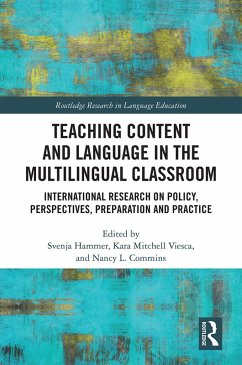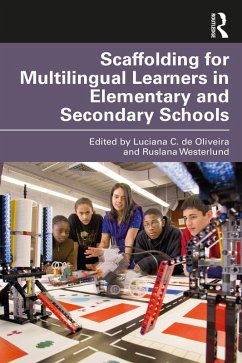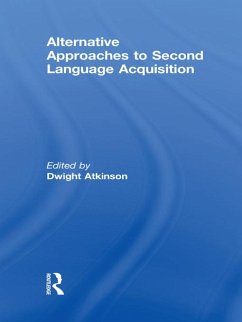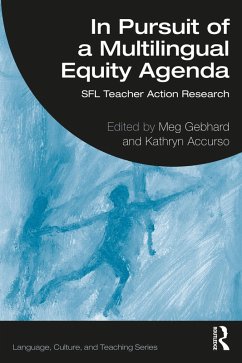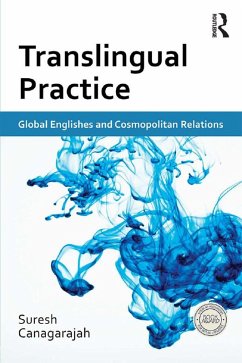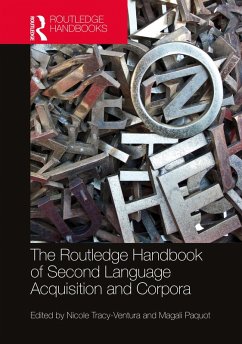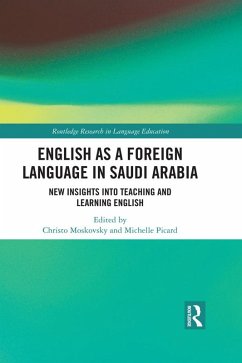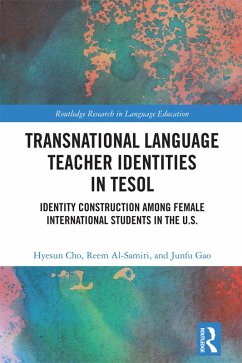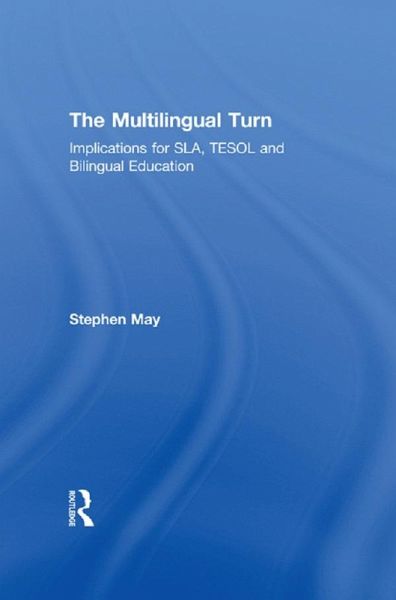
The Multilingual Turn (eBook, PDF)
Implications for SLA, TESOL, and Bilingual Education
Redaktion: May, Stephen
Versandkostenfrei!
Sofort per Download lieferbar
49,95 €
inkl. MwSt.
Weitere Ausgaben:

PAYBACK Punkte
25 °P sammeln!
Drawing on the latest developments in bilingual and multilingual research, The Multilingual Turn offers a critique of, and alternative to, still-dominant monolingual theories, pedagogies and practices in SLA, TESOL, and bilingual education. Critics of the 'monolingual bias' argue that notions such as the idealized native speaker, and related concepts of interlanguage, language competence, and fossilization, have framed these fields inextricably in relation to monolingual speaker norms. In contrast, these critics advocate an approach that emphasizes the multiple competencies of bi/multilingual ...
Drawing on the latest developments in bilingual and multilingual research, The Multilingual Turn offers a critique of, and alternative to, still-dominant monolingual theories, pedagogies and practices in SLA, TESOL, and bilingual education. Critics of the 'monolingual bias' argue that notions such as the idealized native speaker, and related concepts of interlanguage, language competence, and fossilization, have framed these fields inextricably in relation to monolingual speaker norms. In contrast, these critics advocate an approach that emphasizes the multiple competencies of bi/multilingual learners as the basis for successful language teaching and learning.
This volume takes a big step forward in re-situating the issue of multilingualism more centrally in applied linguistics and, in so doing, making more permeable its key sub-disciplinary boundaries - particularly, those between SLA, TESOL, and bilingual education. It addresses this issue head on, bringing together key international scholars in SLA, TESOL, and bilingual education to explore from cutting-edge interdisciplinary perspectives what a more critical multilingual perspective might mean for theory, pedagogy, and practice in each of these fields.
This volume takes a big step forward in re-situating the issue of multilingualism more centrally in applied linguistics and, in so doing, making more permeable its key sub-disciplinary boundaries - particularly, those between SLA, TESOL, and bilingual education. It addresses this issue head on, bringing together key international scholars in SLA, TESOL, and bilingual education to explore from cutting-edge interdisciplinary perspectives what a more critical multilingual perspective might mean for theory, pedagogy, and practice in each of these fields.
Dieser Download kann aus rechtlichen Gründen nur mit Rechnungsadresse in A, B, BG, CY, CZ, D, DK, EW, E, FIN, F, GR, HR, H, IRL, I, LT, L, LR, M, NL, PL, P, R, S, SLO, SK ausgeliefert werden.




